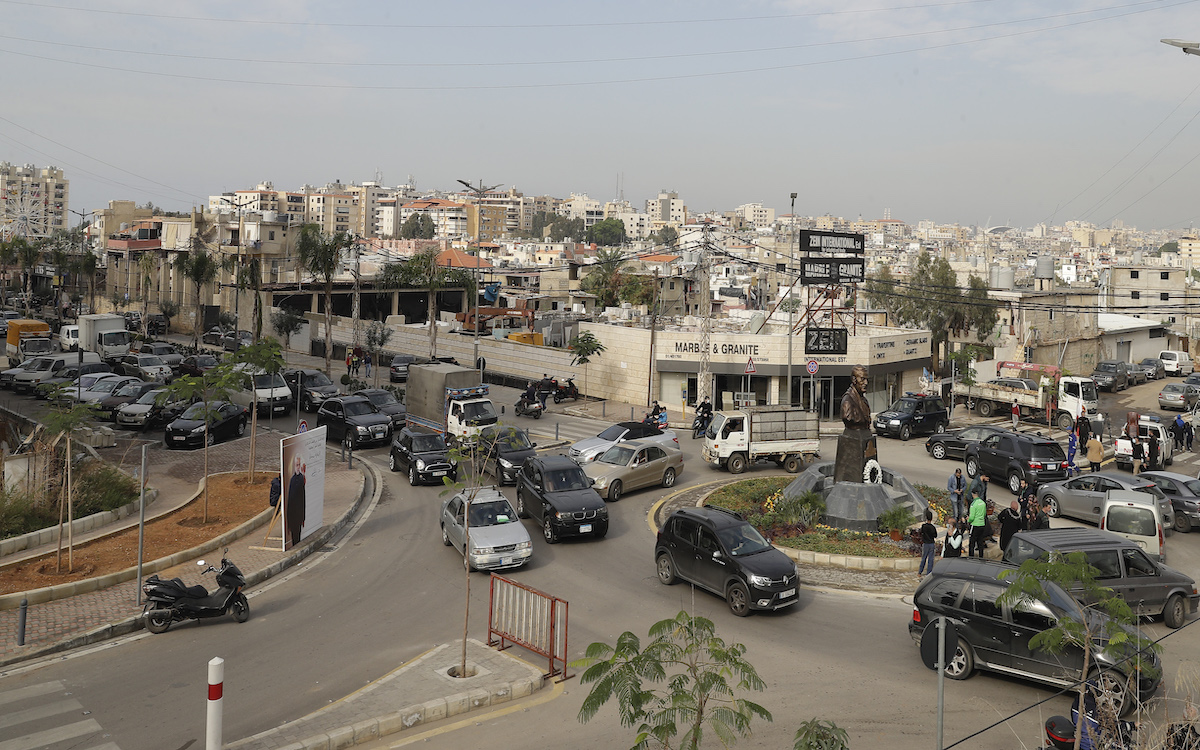
For the last several years, the Ghobeiry Municipality has been going after the Golf Club in its area for allegedly not paying its fees, an assertion that the club has refuted, arguing that these claims are only an attempt to close them down.
This issue may have finally come to a head after the caretaker government intervened in the dispute.
Closing the doors: The Golf Club sits on a 409,000-square-meter green space, which it has been renting from the Directorate General of Civil Aviation for years without any issue. The area is adjacent to the new Iranian embassy complex, and thus for Iran and its Lebanese proxy Hezbollah, who are in control of the Ghobeiry Municipality, this is not merely a dispute over fees or real estate but a matter of security.
However, according to Maan al-Khalil, the head of the Ghobeiry Municipality, the club has not been paying all of its fees since around 2018, with the Golf Club allegedly owing the municipality upwards of 18 billion Lebanese Lira (around $190,500 at the current exchange rate).
These claims have been heavily disputed by the club and its lawyer, who insist that not only has the club paid all of its fees, but that the entire dispute is being fabricated by al-Khalil in an attempt to shut down the Golf Club.
While al-Khalil has denied that he seeks to close the club, he sent members of the Ghobeiry Municipal Police to the property with the intention of shuttering the doors on the club. Members of Lebanon’s security forces intervened, however, arresting several of the individuals who went to close the Golf Club.
Al-Khalil insists that the closure would not have been permanent and that the club would have been allowed to reopen once the supposed overdue fees were paid.
The municipal leader also says that if the club pays the alleged unpaid fees, then all harassment and municipal obstructions against the club would cease, giving his argument that the municipality is simply owed dues a threatening feel.
Real estate: The issue over the fate of the Golf Club has also been framed as one over the land that it sits on.
In the event that it is shut down, there has been talk that it would be turned into an Iranian-made power station, or that residential buildings would be constructed on the land.
There have also been reports that should the club be closed, then Hezbollah would buy up the land “at any price,” partly due to its strategic location near the Iranian Embassy and the Beirut Airport. The surrounding area has in the past been the center of a dispute, with Hezbollah being accused of using a number of industrial facilities to store and manufacture missiles.
Al-Khalil has refuted the claims that the municipality is trying to seize the land for its own purposes and has added that the club is actually the one that is taking land that does not belong to it.
However, when asked if the owner of the land that the club sits on has filed any complaints, he said that he was not aware of any, calling into question the validity of his statements about the club’s seizure of land.
In response to al-Khalil’s claims, the head of the Golf Club said that the supposed seized land is actually private property that is being shared with the club.
There is also precedent for the municipality to try and take over the land that the club sits on.
In 2017, the municipality successfully took back a car park used by the club.
A deal behind closed doors: As with most political solutions in Lebanon, the seeming end to the fight over the Golf Club fees occurred with a backroom deal, away from public scrutiny.
This happened after caretaker Interior Minister Bassam Mawlawi finally intervened.
The meeting reportedly consisted of MPs Ali Ammar (Hezbollah-Baabda) and Amin Shri (Hezbollah-Beirut II), along with the governor of Mount Lebanon, Mohammed Makkawi, and Karim Salam, president of the Golf Club.
Depending on how the court will rule, the club has said that it is willing to pay anything that is legally decided.
An end to the fight?: While the case of the Golf Club appears to be coming to an end with a court ultimately ruling on what should happen regarding the supposed overdue fees, it remains unclear if this is the end of the story.
Al-Khalil had previously stated that if the club paid the fees that he claimed were overdue, then the municipality would cease its harassment of the Golf Club.
However, al-Khalil has also said that building an Iran-funded power station remains within the realm of possibility, as it would supposedly only take up 20,000 square meters of the over 400,000 square meter land. It would ultimately be up to the Lebanese government if the power station was approved, hinting at the possibility of another dispute in the future.
While Khalil has made it a habit of hiding behind codes and regulations, the Ghobeiry Municipality named the avenue leading from the Rafik Hariri International Airport after the first supreme leader of Iran, the late Ayatollah Khomeini, and also named public squares after two slain Hezbollah figures both accused by the International Tribunal for Lebanon of assassinating the former Lebanese Prime Minister Rafik Hariri.







